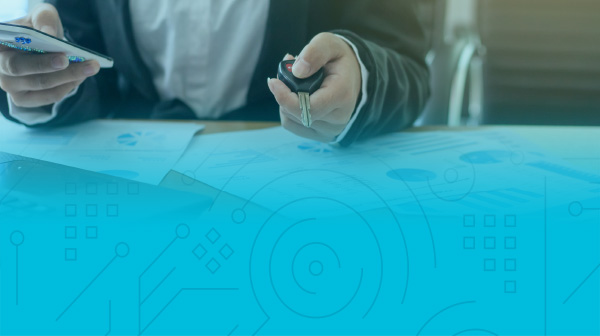Automation and artificial intelligence technologies are changing the way consumers and dealerships think about auto retail. Consumers prefer dealerships that use these technologies to make the buying process more pleasant and personal. And dealerships want to provide these conveniences to their consumers to stay competitive. It’s a win-win scenario.
So why doesn’t every dealership today have these technologies in place? Many are facing barriers that make implementation difficult, but with the right tools and knowhow, these barriers can be overcome.
What are personalization technologies?
When we say personalization technologies at VinSolutions, we generally mean automation and artificial intelligence. Both automation and artificial intelligence can generally be defined as computer systems that can perform tasks that normally require human intelligence. Common examples include Spotify’s “Made for You” playlists and Amazon’s preference recommendations. These technologies process information based on data inputs to provide a personalized experience for each user. In auto retail, these technologies can analyze customer communications to provide dealers with insights into their customers’ interests. Dealers can then use these insights to provide a more personalized buying experience to each individual consumer.
Overcoming Consumer Hesitations
Because artificial intelligence and automation technologies are becoming so common, they have created certain expectations (and some hesitations) in the minds of consumers. Consumers are aware that these technologies benefit businesses, but privacy becomes a concern when they are asked to provide personal information. Consumers are however, less skeptical of technology when it’s used to improve the customer experience. In fact, a streamlined, improved customer experience is now an expected part of the retail experience. And consumers tend to grow impatient with companies that fail to deliver. Of course, these technologies benefit business and help boost dealerships’ bottom lines. But when they’re implemented with the customer experience in mind, consumer skepticism declines.
Overcoming Resistance to Change
According to the 2019 VinSolutions Technology and the Transformation of Retail Study, three of the top barriers to adopting new technology involve change management. And 49% of dealers that are not likely to adopt new technology in the next two years cited staff resistance to change as their top challenge.
This is challenge that can be overcome, however, with good staff training on the new tools and their benefits. And a big part of this training has to be making sure staff understand that artificial intelligence is not a replacement for human employees. Instead, artificial intelligence is a tool to make employees’ jobs easier. In fact, 72% of dealers say that artificial intelligence improves efficiency to the point where staff can focus their efforts in other areas at the dealership. Plus, the majority of consumers still prefer to deal with real people when they need answers, even if it means waiting longer.
Bottom line: Personalization technologies, including artificial intelligence and automation, help both dealerships and consumers. When dealers work to overcome the common barriers to implementation, they can bring in more customers and boost their bottom line. Plus, consumers get a better, more personal buying experience. Personalization technology is a win-win for auto retail, and it is the present and future of the industry.

.jpg?w=600)
